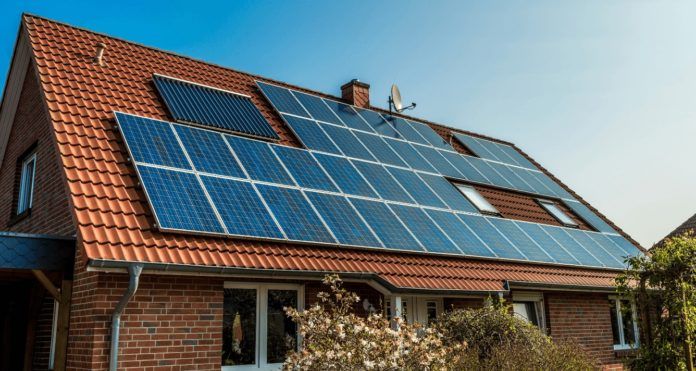The government has laid out a plan to accelerate the country’s deployment of wind, new nuclear, solar and hydrogen power, whilst supporting the production of domestic oil and gas in the nearer term – which could see 95% of electricity by 2030 being low carbon.
Among other plans, such as a licensing round for new North Sea oil and gas projects planned to launch in autumn, enhancing offshore wind power, and introducing a heat pump investment accelerator competition, the government will look to increase the UK’s current 14GW of solar capacity which could grow up to five times by 2035, consulting on the rules for solar projects, particularly on domestic and commercial rooftops. The Strategy is also set to bring 10,000 jobs in solar power.
The plans come as energy prices increase due to sanctions being put on Russia and surging demand after the pandemic.
Industry thoughts…
Commenting on the development, James Talman, CEO of the National Federation of Roofing Contractors (NFRC), said: “We are pleased to see the government’s plans to increase solar capacity across the UK, with expectations that deployment will increase five fold by 2035. We encourage the government to capitalise on the many acres of industrial flat roof space across the country for the situation of panels, rather than using solar ‘farms’ on land that would otherwise be useful for agricultural or other purposes.
He added: “The elephant in the room is that the strategy lacks new provision to improve energy efficiency. Reducing demand is a quick win: the first step to meet the UK’s needs should be improving the energy efficiency of our buildings through properly insulating roofs and walls.
“Fitting a roof with solar panels is an excellent way to provide a source of power for business premises and homes, but if the building is heated yet poorly insulated, a proportion will be lost straight away. Investing in generating more power holds less weight if a substantial proportion of it will be immediately—avoidably—wasted.
“The Business, Energy and Industrial Strategy Committee has said that improving the energy efficiency of the entire UK building stock is a national infrastructure priority and should be recognised as such by the government. Let’s focus on energy efficiency in conjunction with efforts to generate green energy, so that what we generate doesn’t go to waste.”
Meanwhile, Brian Berry, chief executive of the Federation of Master Builders (FMB) criticised the Strategy, saying it fails to deliver for builders, with no significant measures announced to improve the UK’s 29 million energy inefficient homes which would help cut bills and lower emissions.
He said: “The Energy Security Strategy completely misses the mark in tackling energy consumption in our homes. After the disappointment of the Heat and Buildings Strategy, this was an opportunity for the government to implement a National Retrofit Strategy, focusing on improving the energy efficiency of the UK’s draughty and leaky homes. While the Strategy does deliver 0% VAT on energy efficiency improvements to properties, a welcome move that the FMB has long been campaigning for, this only helps those with the money to pay in the first place.
“A broader, insulation led, retrofit strategy would have been an immediate solution to reduce energy consumption, boost the economy and importantly, help save homeowners money on their bills during a cost-of-living crisis.”
>>Read more about solar power in the industry here.




